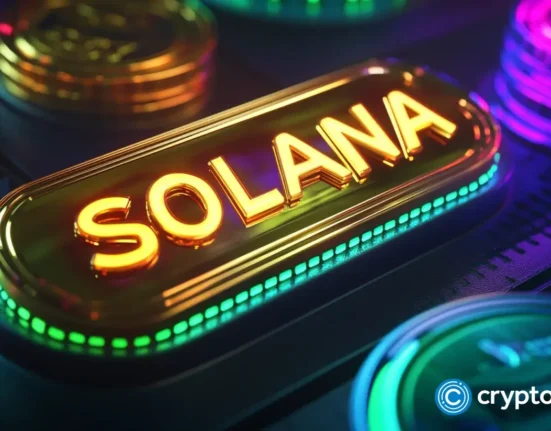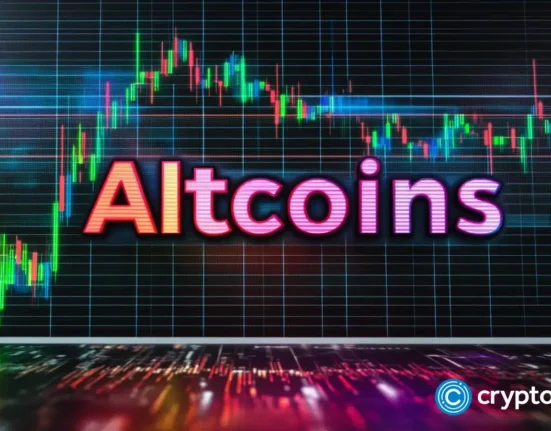Ripple CEO Brad Garlinghouse has made strategic comments expressing readiness to collaborate with the US government. Collaboration could be an important step toward good trust and collaboration between the cryptocurrency industry and government regulators, especially with the impending 2024 U.S. elections. Such a move could not only benefit Ripple but also help strengthen the position of digital assets within the United States financial ecosystem.
Why Garlinghouse’s Position Matters?
Brad Garlinghouse’s statement comes after the indication of readiness to elbow together with U.S. policymakers irrespective of which political party wins the impending election. Against the backdrop of continued court confrontations Ripple faces with the SEC, this is a crucial development. Cooperation and discussion between the crypto industry and the government will finally give them the more transparent regulatory framework needed for the broader adoption of digital currencies.
Historically, the US government has been very cautious around cryptocurrency because it threatens the traditional financial system. Garlinghouse’s openness about it might just be what helps to dispel some of the myths and misunderstandings around the space. As Ripple is one of the leading companies in blockchain technology, XRP is among those tokens that are better known worldwide. Setting that fact in place gives the company a good ground to shape the conversations of how digital assets can coexist with traditional financial systems.
Potential Benefits of a New Government
The 2024 elections may dramatically change the American regulatory environment. Whatever political affiliation the new regime may have, what is important is that it might give in to the latest trends of innovation within the financial system. Most people saw cryptocurrencies and blockchain technology as skeptical innovations until they suddenly became the game changers of everything from cross-border payments to DeFi.
This could mean that Ripple stands to have a say in new policies that may be favorable to the growth of digital assets. Should the new government turn out to be more crypto-friendly, Ripple’s early move to collaborate earns it a seat at the table. That’s huge in having a say in future regulations that may affect the whole industry.
In that respect, the cooperative approach will bridge the gap between crypto innovators and government officials. Each needs the other since the government will need innovators to ensure that the U.S. remains competitive in the globally attended fintech race; meanwhile, companies like Ripple need a stable regulatory environment to thrive.
Ripple’s Ongoing Legal Battles with the SEC
One of the most heated topics in the crypto space has been the ongoing lawsuit between Ripple and the U.S. Securities and Exchange Commission. While the latter claims the native token, XRP, is sold as an unregistered security, the company says this claim is far from the truth. Although the case is in limbo, such a conciliatory gesture by Garlinghouse may be just what Ripple needs to inch itself out of this legal quagmire.
A new administration might bring fresh eyes to the case and a more comprehensive picture of digital assets regulation. This will undoubtedly be critical as Ripple builds out its blockchain technology for cross-border payment solutions. Through cooperation with the government, a resolution to the SEC case could very well. It unlocks a position whereby Ripple could accomplish all it can in the U.S. market.
Importance of Tokens in Cooperation With the Government
Cryptocurrency and blockchain do signify the future of finance, but they cannot exist in a vacuum. For tokens like XRP to thrive in the long run, they need the cooperation of government entities. Many of their ideas and dreams of wide-scale adaptation and digital assets will need to come from government oversight. That is not overregulation but rather one that will protect the consumer while allowing innovation to flourish.
Also, clarity in regulation will attract the big wallets of institutional investors into the crypto space. Institutions have shied away from fully embracing crypto due to the unclear regulatory environment. A closer working relationship with the token issuers, such as Ripple and the government. This would ease these concerns and lead to further mainstreaming of the assets.
Clear regulations would, therefore, go a long way in aiding Ripple’s cross-border payment solutions, which are faster and cheaper than traditional methods. If the U.S. government truly believes in the potential of blockchain technology, then Ripple could very well turn out to be a critical player in the global financial ecosystem.
The Ripple Effect on the Broader Crypto Space
Such collaboration by Ripple with the government could set a very good precedent for the broader cryptocurrency industry. It shows that blockchain companies are not adversaries to regulators but could be potential partners in building a more efficient financial system. This could lead to other blockchain projects following suit and creating a more cohesive relationship between the crypto space and regulators.
Brad Garlinghouse’s readiness to collaborate with the incoming U.S. government is forward-thinking. It may benefit not only Ripple but the whole cryptocurrency industry. Benefits such as clear regulation, increased institutional trust, and the right to innovation are just too good to let slip away. Through the collaboration, Ripple and the US government can lay down the future of finances, where digital assets have a place in the modern economy.








